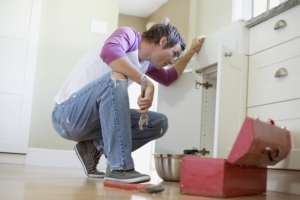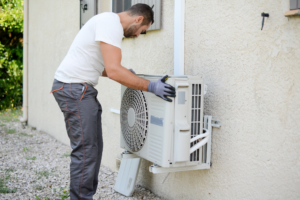Maintaining a well-functioning plumbing system is key to ensuring a comfortable and trouble-free home. With consistent upkeep, homeowners can prevent many common issues like leaks, clogs, and water heater problems, which can lead to costly repairs if left unchecked. Whether it’s knowing what to look out for or scheduling regular checkups, a proactive approach can keep your plumbing system in excellent condition. Here are some essential plumbing maintenance tips every homeowner should consider.
1. Regularly Check for Leaks and Drips
Leaks and drips, however small, can quickly turn into major problems if ignored. Even minor leaks can lead to significant water waste, increased utility bills, and potential water damage. Homeowners should regularly inspect faucets, showerheads, toilets, and under-sink plumbing for any signs of leakage. A few drops per minute might seem negligible, but over time, it can amount to gallons of wasted water. Replacing washers or seals can often fix small leaks, while larger ones may require professional help. Additionally, check exposed pipes in basements or crawl spaces, as these areas are prone to hidden leaks that could go unnoticed until they cause substantial damage.
2. Keep Drains Clear and Prevent Clogs
Clogged drains are a frequent plumbing issue, and while they may not seem critical at first, they can lead to extensive damage if not addressed. Preventing clogs starts with careful management of what goes down the drain. Avoid pouring grease, coffee grounds, or large food particles down kitchen sinks, as these materials tend to build up and cause blockages. In bathroom drains, hair and soap scum are common culprits, so using a drain guard can help catch debris before it becomes a problem. Regularly flushing drains with hot water or a mixture of baking soda and vinegar can also help maintain smooth water flow. If a clog persists, a professional plumber can use advanced techniques to clear the pipes without causing damage.
3. Maintain Your Water Heater for Optimal Performance
Water heaters are essential for comfortable living, especially in colder months, so regular maintenance is crucial for ensuring they operate efficiently. Over time, sediment can accumulate at the bottom of the tank, leading to inefficient heating and higher energy bills. Flushing the water heater at least once a year can remove this sediment, improving the unit’s lifespan and performance. Homeowners should also inspect the water heater’s temperature setting, ideally around 120 degrees Fahrenheit, to prevent scalding while optimizing energy use. Additionally, checking the anode rod, which prevents tank corrosion, and replacing it if necessary can further protect the water heater from premature wear.
4. Know When to Call a Professional
While DIY plumbing repairs can be helpful for minor issues, complex problems should always be left to professionals to avoid potential damage. Persistent leaks, inconsistent water pressure, or unpleasant odors can reveal deeper issues within your plumbing system. Additionally, frequent clogs across multiple drains may indicate a blockage within the main sewer line, which requires specialized equipment to resolve. Addressing plumbing problems before putting a home on the market is a smart move, as Revival Homebuyers highly value properties with reliable and well-maintained systems. Scheduling regular professional inspections helps homeowners stay proactive, identifying necessary repairs before they escalate.
5. Winterize Your Plumbing System
Preparing your plumbing system for colder weather can prevent many common winter-related issues. Freezing temperatures can cause water in pipes to freeze and expand, leading to cracks or burst pipes. To avoid this, drain and shut off outdoor faucets and hoses before the first frost, and ensure all outdoor pipes are properly insulated. Inside, maintaining a warm indoor temperature, even in unused rooms, can prevent interior pipes from freezing. Additionally, letting a trickle of water run through vulnerable pipes during extreme cold can help prevent freezing. These simple winterization steps can save homeowners from significant repair costs in the colder months.
6. Check Water Pressure Regularly
Maintaining appropriate water pressure levels is crucial for a trouble-free plumbing system. Low water pressure can indicate problems like mineral buildup in pipes or potential leaks, while excessively high pressure can stress pipes, increasing the likelihood of bursts or leaks. Homeowners can use a water pressure gauge to check their home’s pressure, ideally aiming for a range between 40 and 60 psi. If the pressure is consistently too high, installing a pressure regulator can help maintain safe levels. Regularly monitoring and adjusting water pressure can contribute to the longevity and efficiency of the entire plumbing system.
7. Inspect and Replace Old Plumbing Components
As homes age, so do their plumbing components. Pipes, water heaters, and fixtures can degrade over time, leading to inefficiencies and potential failures. Regularly inspect older pipes for signs of corrosion, leaks, or wear, especially if your home has galvanized steel or cast-iron pipes, which can rust and become brittle. For homes with polybutylene pipes, replacement is especially advisable, as these materials are prone to leaks and deterioration. Upgrading to more durable materials like copper or PEX can improve your system’s longevity and performance. Similarly, consider updating old fixtures with water-saving alternatives, which can help reduce water usage and minimize the strain on your plumbing system.
By following these essential plumbing maintenance tips, homeowners can enjoy a trouble-free home with reduced risk of plumbing emergencies. Preventive care, regular inspections, and knowing when to call a professional can make a significant difference in the overall health and performance of a plumbing system. Investing time and effort in these maintenance practices can not only save on potential repair costs but also improve the comfort and efficiency of your home’s plumbing setup.




